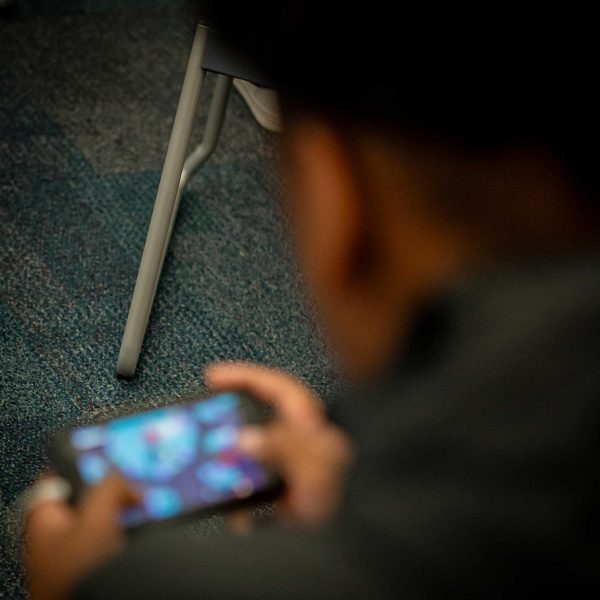
Is Instagram still fun or is it now a detriment to teen’s mental health? In response to Instagram’s recent age verification policy, in hopes of protecting younger users by limiting access for those under 16, conversations about social media’s impact on teens’ mental health and safety have sparked again.
While these restrictions on usage are aimed at child safety and combating damaging internet access, there are still concerns about the possibly harmful social media exposure on teenage users who are on the platforms unmonitored. With issues like cyberbullying, body image problems, and social media addiction linked to an increase in depression and anxiety among teens – it’s crucial to question how age restrictions can impact teens’ mental well-being.
In an article by the New York Times, Neurologist Dr. Frances Jensen at the University of Pennsylvania says during adolescence “Areas that have to do with peers, peer pressure, impulsivity, and emotion are very, very, very active.” The way teens act on and use social media makes it clear that they are sensitive to social dynamics.
When asked about how social media affects your peers, Malea Musonge ‘27 said, “A lot of my friends are too wrapped up in how many likes they get or how many followers they get, and I think that honestly does control what they do post.”
Beyond the validation teens seek on social media, there are concerns about the harmful content and influence social media can expose to adolescents.
A surgeon general’s advisory in The New York Times says “Social media platforms brim with ‘extreme, inappropriate and harmful content,’ including content that ‘can normalize’ self-harm, eating disorders and other self-destructive behavior. Cyberbullying is rampant.”
Students were asked to share their thoughts on harmful practices, social media’s influence on body image, and if there were differences in struggles between boys and girls.
Mayalondyn Howden-Gray ‘25 said, “I think that there is a huge difference between the struggles that girls face and the struggles that boys face. Not only because girls are more exposed to comparative body image culture and a lot of shame on the internet but a lot of social media is targeted more towards women and making women [feel] a certain way about themselves and their bodies. But there is also a struggle with body confidence and body image among men, especially with the rise of gym culture. ”
Many social media apps, specifically Instagram, have implemented new regulations based on the age of their users. The head of Instagram, Adam Mosseri, shared with GMA that these protections are going to “proactively address the top concerns that we’ve heard from parents about teens online.”
The regulations address issues regarding who can contact teens, what’s on their feed, and how much time they’re able to spend on the app per day without requiring parental intervention.
On top of this, Antigone Davis, Vice president and global head for Meta (Instagram’s parent company) shared in the same GMA interview that they are working on new technology to identify when a user has lied about their age.
When asked about the impact social media has on her mental health, Howden Gray said, “I try not to put too much emphasis on what I’m seeing. I do enjoy scrolling but I also know that a lot of social media is fake, so I don’t let it influence me as much as I think it could. It has a neutral effect and it doesn’t make my mental health better.”
Social Media doesn’t always have to have an extremely positive or negative influence on someone. Media discernment is an important part of using social media, especially at a younger age. If getting rid of a social media account isn’t your solution, instead changing your relationship with it can do great things for any individual.
Musonge had a similar opinion to Gray’s, stating that her social media use has a neutral effect on her mental health as she doesn’t “necessarily think that it has a significant impact [her] life… but not in a negative way at all.”
As Gray and Musongue have shown, maintaining a balanced relationship with social media, neither heavily addicted nor completely detached, can lead to a more healthy experience.
However, the destructive parts of social media are still very real. Chase Miller ‘26, said that he thinks “That [social media is] terrible. The world would be better if we didn’t have social media. So I think it has a terrible impact, not just to me but to the world.”
In conversation with Miller, he shared his not-so-sweet experience with social media and even though he stated to have his media usage under control, he believes his own mental health and likely the mental well-being of others would be better without the presence of social media.
Regardless of one’s opinions of social media, it’s often difficult for teens to immediately cut ties with it even when they recognize it’s not the best for them.
When asked if he had any plans to delete his social media Miller said, “Listen, I’m a little nosy and like seeing what people are doing… I just like seeing what’s going on.”
As he sees a positive in his social media use as it connects him with his friends and informs him on certain world events, it wouldn’t make sense in his life to completely discard all of his socials.
While the impact of social media and the growing restrictions around it can vary from person to person, it’s clear that many teens are navigating the highs, lows, and overall complexities with a sense of mindfulness and discernment. There doesn’t seem to be one clear path where social media use, its policies, or its effect on mental health is going, but the conversation continues to stay relevant.














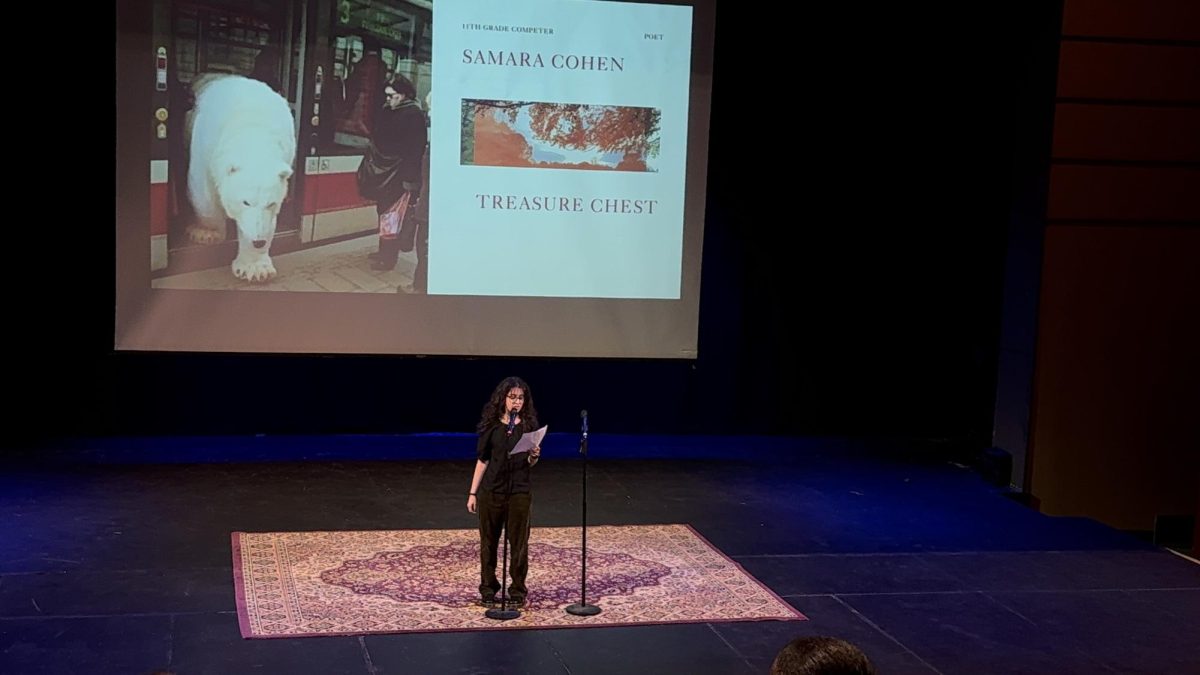
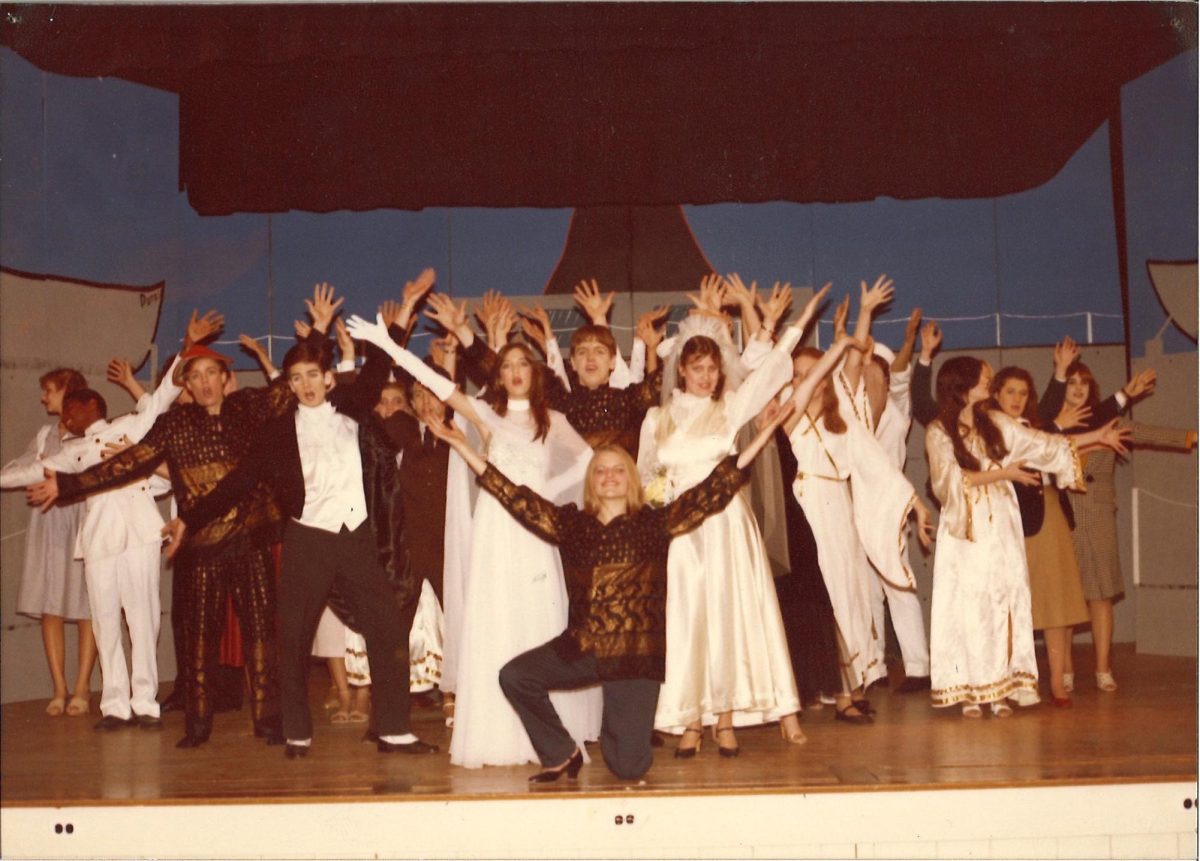

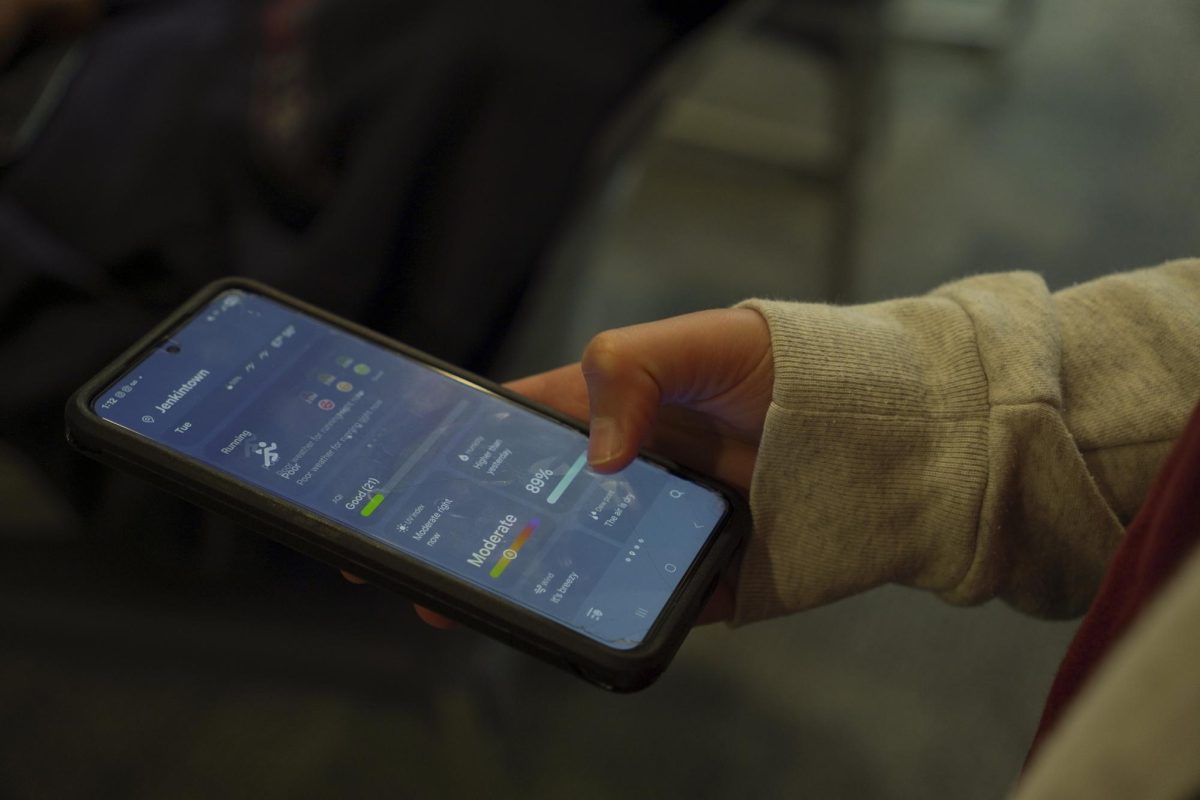


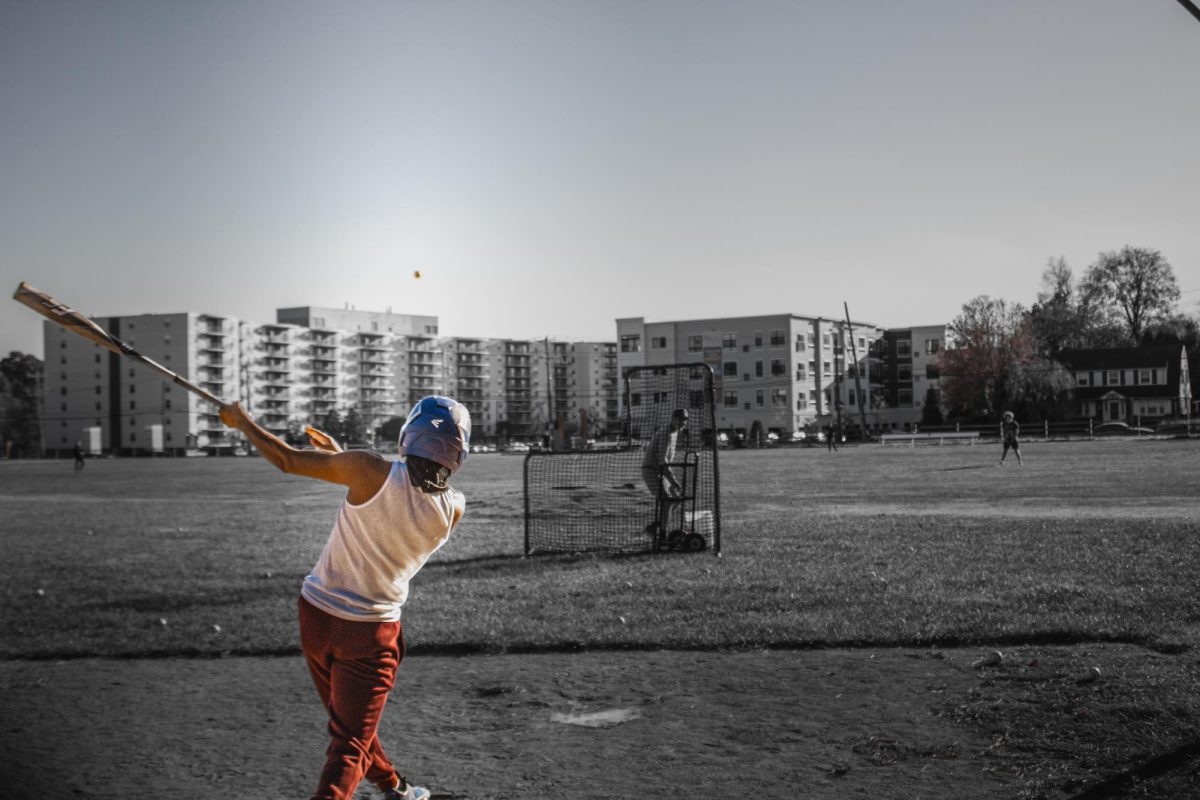
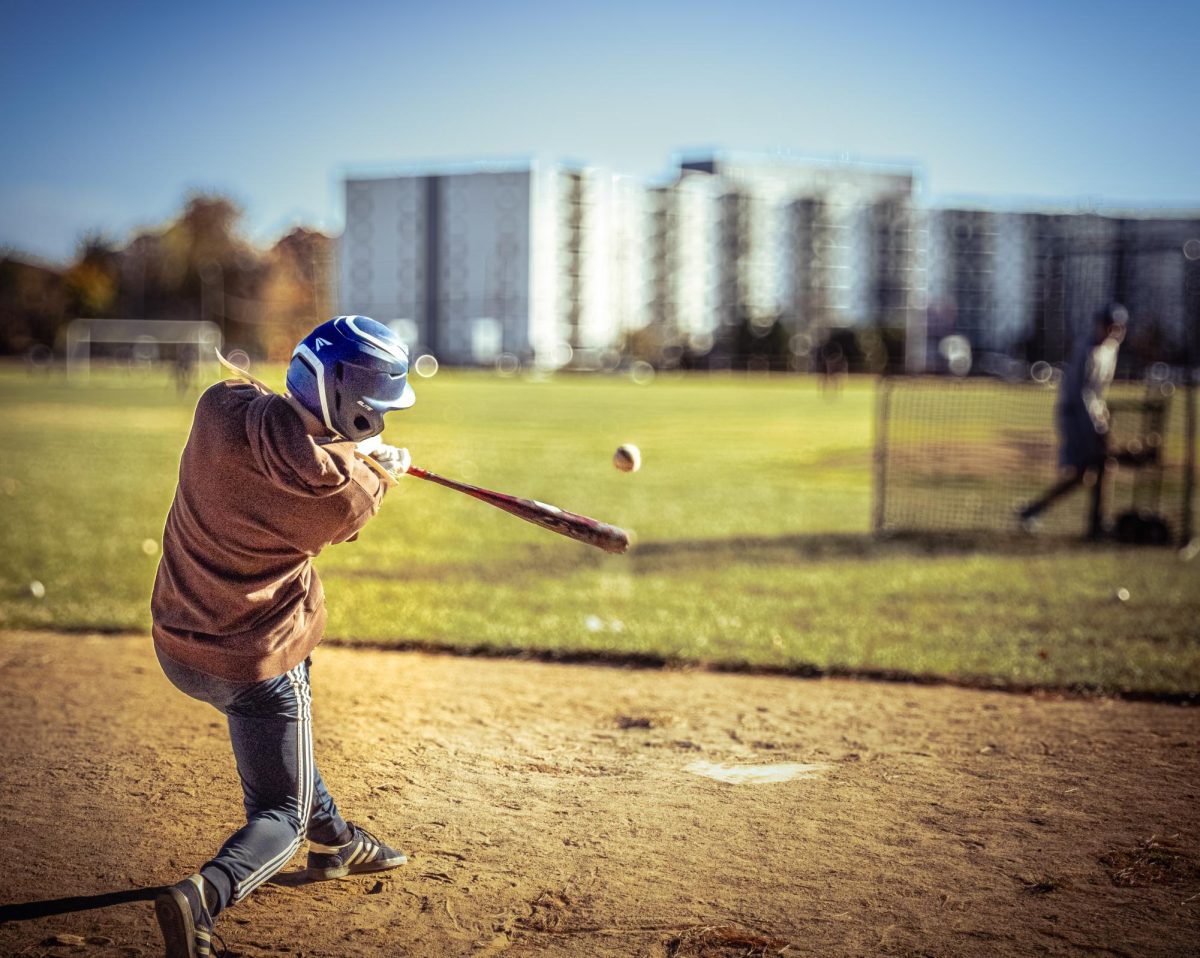

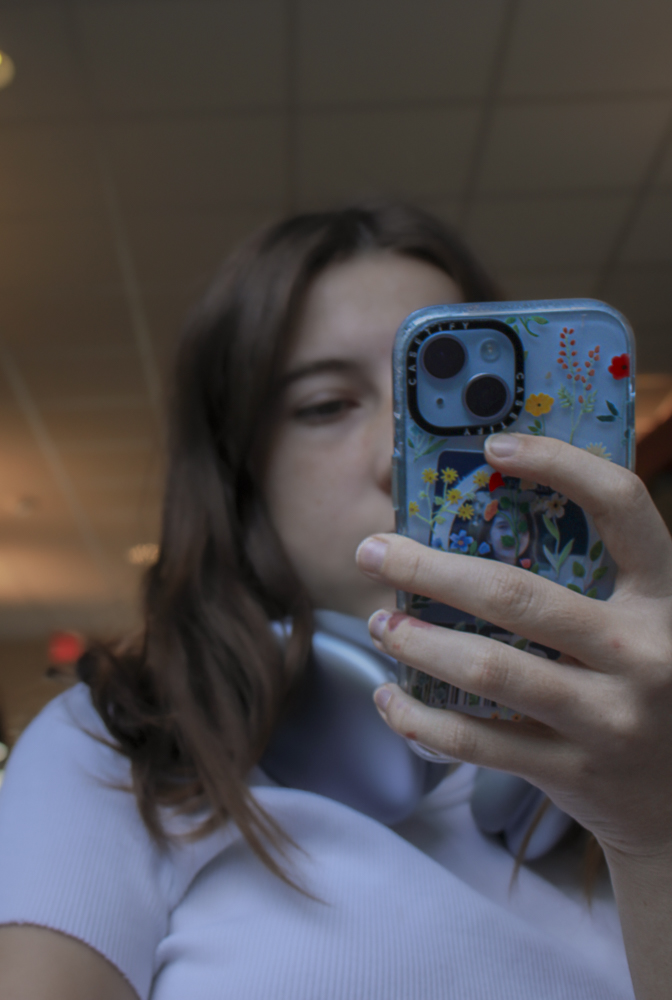
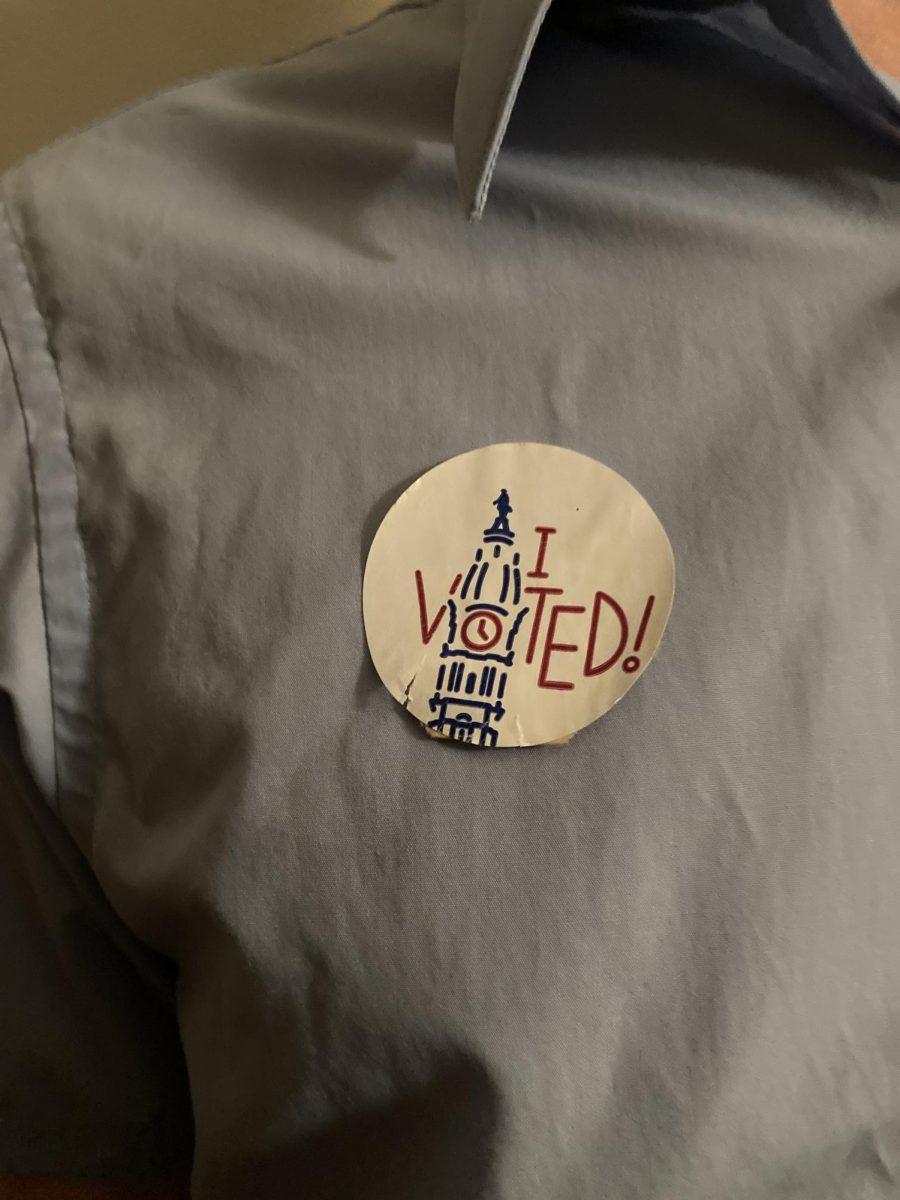


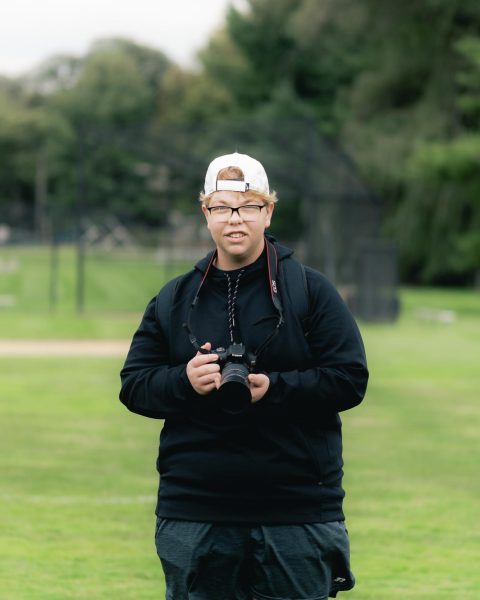
Lorelai • Dec 14, 2024 at 5:40 pm
I agree with the perspectives shared in “How does social media affect teens mental health” about social media and mental health. Although I’m not supposed to have Instagram because I’m not 16 there certainly are ways around that. I however don’t let anything I see or read get to me. I understand that a lot of what we see online is not real. I also have a great support system at home in case a situation ever came up where I felt a certain way from something someone said or posted. With that being said I also try to make myself busy enough that I’m not on social media that much. I play sports and that takes up a lot of my time as it is. I actually haven’t noticed any changes to instagram in the last few months most likely because I’m not on it enough.
Anaria • Dec 12, 2024 at 2:06 pm
I agree that social media can be a positive and a negative influence depending on how one chooses to use it. For instance social media can be used as entertainment or as news. How social media impacts my health is that it’s sometimes harder to disconnect from my phone. But it also gives me a different under of the world around me. Have I noticed a difference in instagram no I haven’t because I don’t use instagram but I would assume there would be a difference considering the past events that happened. It does impact my views of how I use it because I don’t use instagram.
Logan • Dec 12, 2024 at 1:18 pm
I agree with the perspectives, I agree that social media can help you to stay in contact with people, but too much of anything can be bad for you. However, I don’t think putting yourself out there for the world to judge, I just don’t think it’s worth the time nor energy especially of you can’t handle criticism or that’s just not something you’re comfortable with.
Jona • Dec 12, 2024 at 10:22 am
I agree that social media is causing negative self-body images for many people around the world. For me, social media has had negative effects on me in the past, but today it’s very important in my life because I get motivation from it and it is how I mainly get my news (don’t worry, I do more research on whatever I see on the internet). I personally only use TikTok. I have noticed a lot of changes with TikTok since I started using it. For example, I noticed how there is a lot more moderation than there used to be.
Eli H. • Dec 8, 2024 at 8:11 pm
I agree with the statement that even if someone realizes that social media has a negative impact on their life, they may not immediately cut their usage of it, if at all. I think that not all social media is bad, and that it can be nice to use, it is just important not to use it too much. I also agree that social media does not always have a large impact on the lives of its users, especially if the users remember to use social media healthily and sparingly. I was surprised to hear that Meta is trying to limit the usage of its users who are under 16 years old.
ethan • Dec 7, 2024 at 1:30 pm
4. Social media definitely has had a large impact on my mental health. Whether that is positive or negative really determines what I see which is hard to navigate because on an app like instagram it can be hard to control what you see. I think it is better for me to stick to the pages that you already follow and post content that you enjoy and are informational or just content that you like whatever that may be. Unfortunately most of the time I think that our curiosity for wanting to see what’s out there gets the best of us and we end up diving into the internet not knowing what to expect and sometimes getting met with things that can negatively impact our mood or mental health.
Mason Fullerton • Dec 2, 2024 at 2:02 pm
Social Media has impacted my mental health, not crazy negatively, I would say, but I understand the concern with it. I get distracted by my phone and social media, but at the same time, I find apps like Instagram a place to take a break and also where I learn a lot about people. It is interesting to see people’s personalities through social media compared to in person, but I also find myself connecting with a lot of people that I might not be able to meet in person through social media. For context, I am referring to the social media work I do with sports and sports photography. I have connected and met a lot of people my age through Instagram, for example, and I connect with photographers at all levels through social media. Going outside and interacting with friends and family is something I am big on, but sometimes I do like my space and I always have found social media a place for me to chill. My experience I felt, has brought more out in me in regards to displaying my camerawork, but I do want to work on my balance of social media and nonsocial media time.
John • Dec 2, 2024 at 1:58 pm
I think that social media has its pros and cons regarding to mental health. I believe that it varies on the person, how much they are on social media, and what exactly they are watching or looking at on social media. I do think that it goes under the radar and that young people tend to disregard the effect that social media plays in their everyday life.
student • Dec 1, 2024 at 10:02 pm
I agree with the perspective in this article as social media has a neutral impact on my mental health. As a perspective from the article outlines, I’m both not addicted but not completely detached from the world of social media either. I use Instagram for the purpose of engaging with my friends and family and staying up to date with their lives. However, I also see the negative effects social media can have on others, so I’m able to understand the need for social media to have stricter guidelines when it comes to allowing younger generations on the app.
Casey • Nov 30, 2024 at 7:33 pm
I agree that it is incredibly hard to stop using social media but I also wish it would become a more widespread phenomenon. Having been off social media almost completely for over a year, I can definitively say I am better off without it. I think social media doesn’t just lead to endless comparisons to other people but it also encourages disengagement from the real world around you that for me at least felt even more worrying. I think many people feel pressured to stay on social media because that’s where all of their friends are which makes deleting an app like Instagram seem like a big leap, that could even affect relationships with the people around you. Still, in my experience, despite the lack of direct insight into people’s lives through social media, the ability to live in the present I have gained from disconnecting has only helped deepen my relationships with the people I care about.
Gio Damico • Nov 26, 2024 at 8:32 am
I agree with the article’s perspective on how social media influences teenagers. I also like how it shows social media’s good and bad sides. for me, social media is good for connecting with my friends, seeing current events, and finding inspiration or ideas, but it can also be very stressful or make me compare myself to others. The more recent Instagram changes, including age checks, are supposed to help younger users like myself, but it hasn’t changed how I use the app. Instagram can still be an enjoyable environment like seeing what your friends are doing, watching reels, etc. But just as it says in the article, it is also a cause of stress for a lot of teens, so that’s why it’s important to keep a balanced relationship with social media just like Mayalondyn and Malea.
Sylvie • Nov 26, 2024 at 8:21 am
I agree with what was said about social media in this article, I think that it is important to recognize the different perspectives in this article as well. I know that social media has a bad side that can affect so many people and spread wrong information, but I also know it has a good side too. I prefer to stay at the good side, I am not that impacted by negative posts. I personally do not have instagram, but I do appreciate that the people who are in charge of it are taking action and attempting to improve the app for the better, and creating a way that will protect people more, especially younger kids I believe.
Student • Nov 25, 2024 at 6:33 pm
I think social media has had a very negative effect on my mental health. When I got started posting on Instagram, I started worrying about how I would be perceived by people looking at my account. I have since made my account private to limit who can see what I post, but it still affects me negatively. It makes me think more about how I look, and makes me compare myself to others. I think I would be much happier and less judgemental of myself if I deleted it, but it’s a little addictive and it’s hard to put away.
Bella D • Nov 25, 2024 at 1:07 pm
I agree with the perspective shared in this article. Social media has a lot of positive and negative effects, and it’s difficult to predict how much social media will shape the future. Social media plays a decently-sized part in my life. I use it to talk to friends, to keep up with people I used to know, and to be entertained when I’m not doing anything. However, I can personally attest to the fact that cyberbullying, especially when done anonymously, can be really distressing and demoralizing. Online harassment is a very big issue for many teens today, and it can make social media usage difficult.
Jenny Niu • Nov 25, 2024 at 1:07 pm
I agree with this article, especially the part where it said caring about followers and likes limit what you post on social media platforms, this is exactly me. I have 63 thousands followers in total on Chinese TikTok, (I have 2 accounts, 43 thousand for one of them and 19thousand for the other) and my intention to gain followers limited a lot. For example, I have been posting my videos and photos in a specific style and when I wanted to change, I was afraid that people will unfollow me and therefore I just kept the original aesthetic. Another disadvantage of using social media platforms is that it could bring great anxiety to teens, especially anxiety about one’s appearance. There are so many pretty faces in the internet, when actually we can barely see any of them in reality—the truth is there’s no need to “compete ones prettiness” with others, unless that’s what you do for living. Even if one does use the social media for living, just remember that photos can be photoshopped, as well as videos.
Student • Nov 25, 2024 at 1:00 pm
Throughout this article I did agree with some of the things stated and the perspective of the article. Although there were some things that I didn’t exactly agree with, I mostly agreed with everything else. Social media has had a good and bad impact on my mental health. There can sometimes be encouraging, positive, motivational things on social media. Those things can some times help with I am feeling down or need a little push. But there is also a negative side to it. There can sometimes be things that are devastating or shocking for many people. Those things are can scare a younger audience. Most of the time social media platforms like instagram don’t pay much attention to the age of the user which isn’t okay. I noticed that instagram has had many changed is it. Some of the changes are good and more protective.